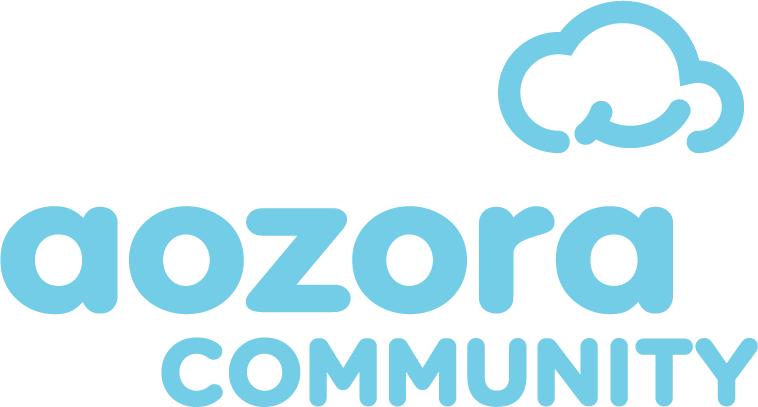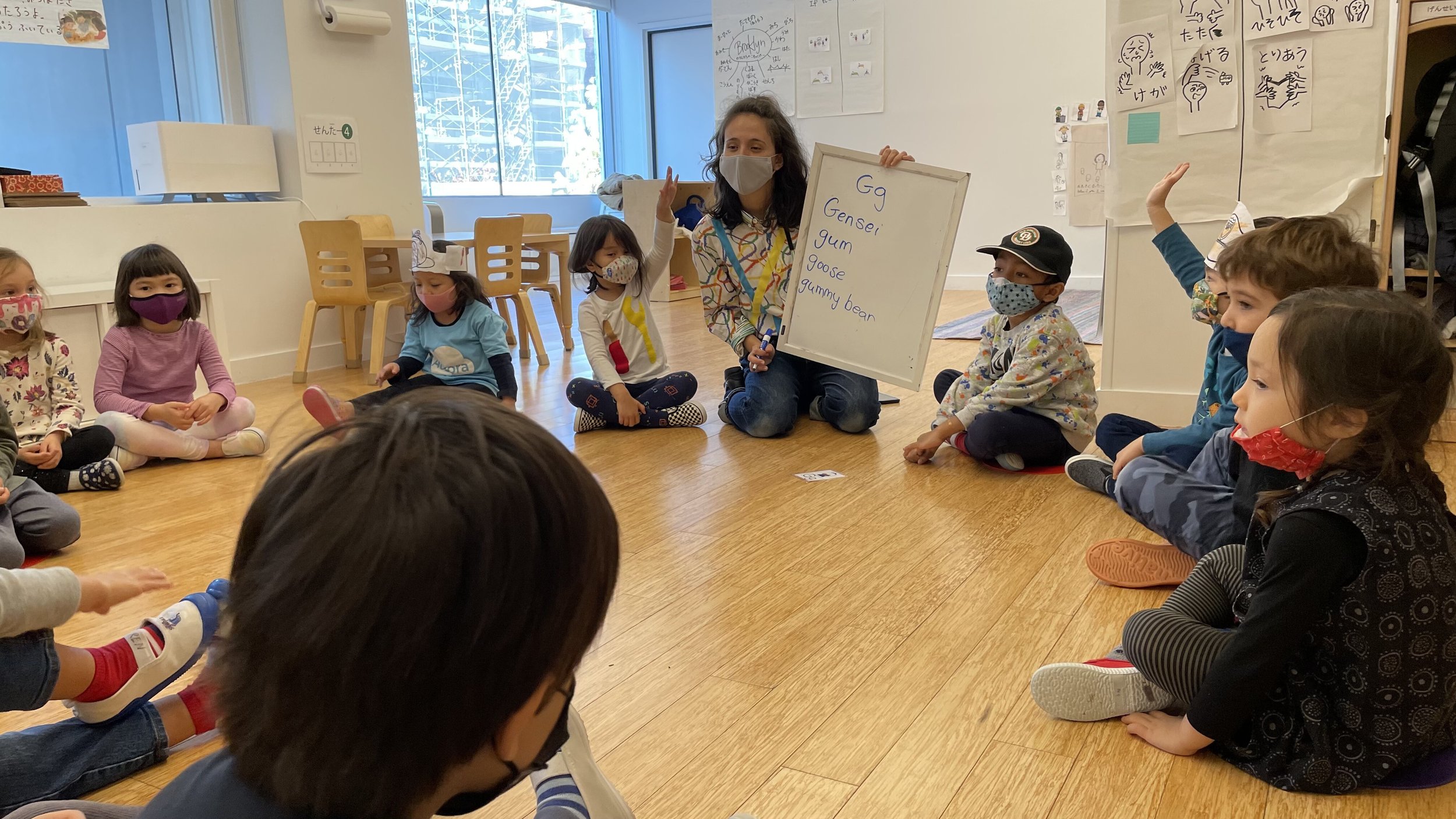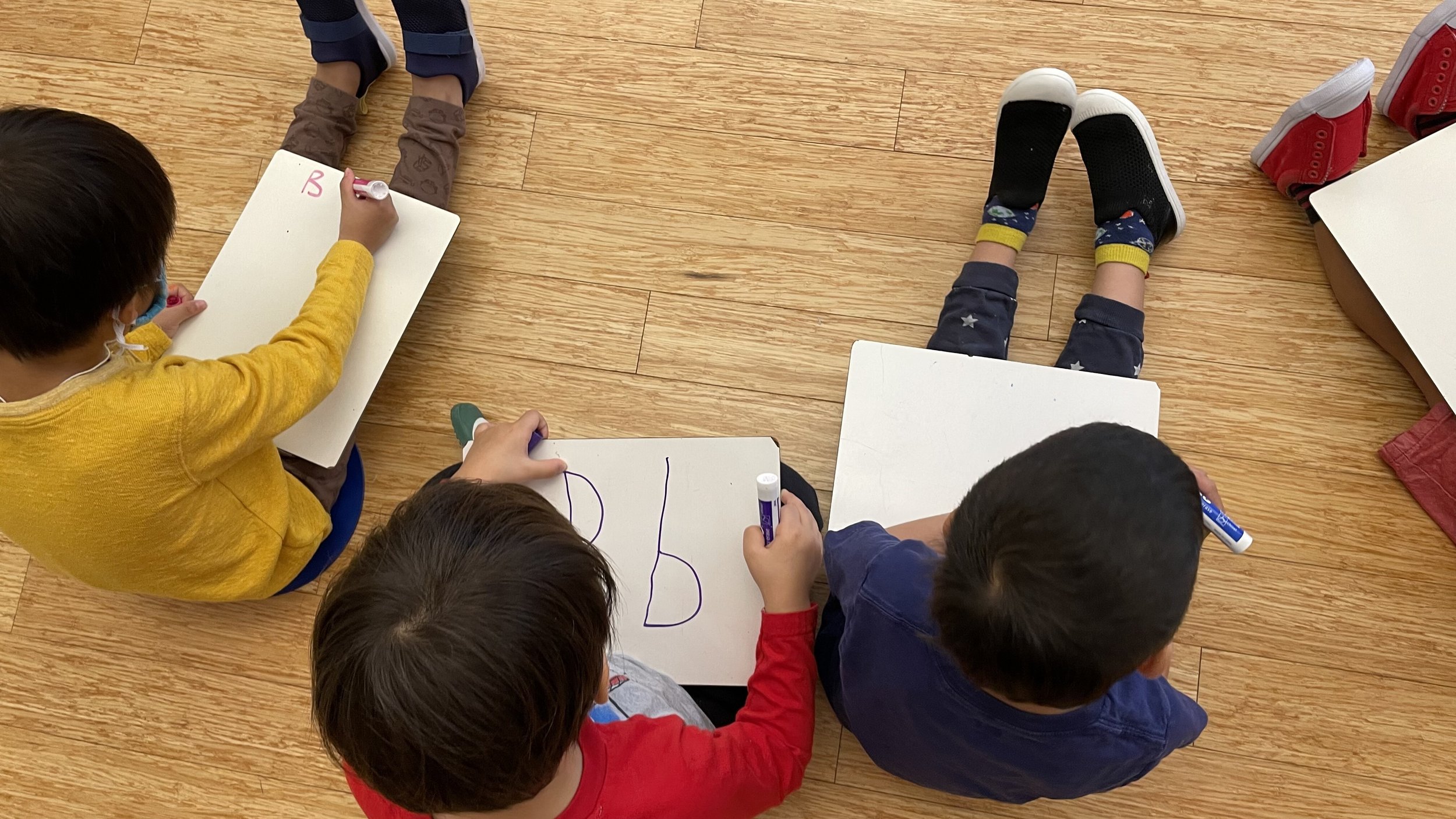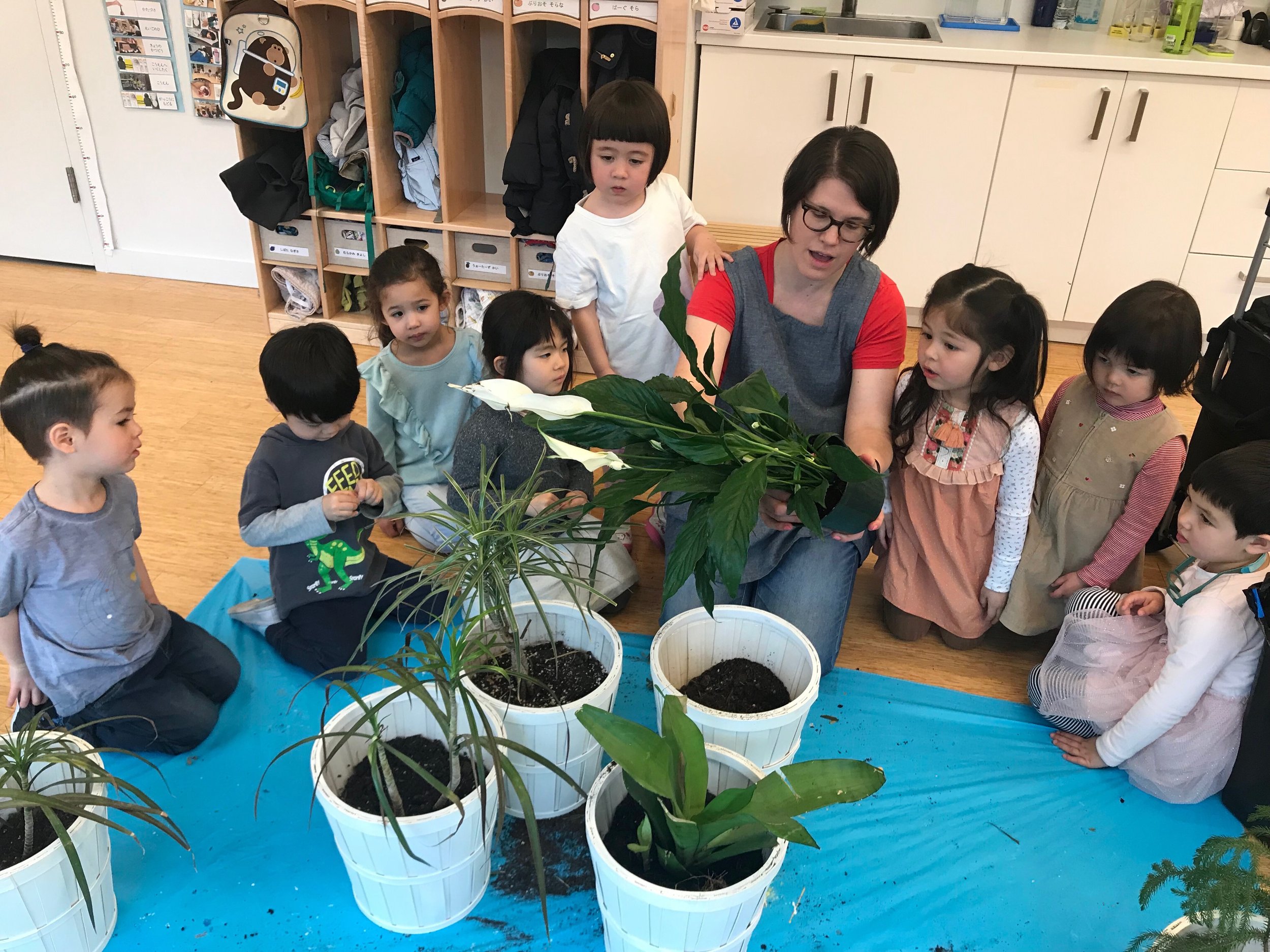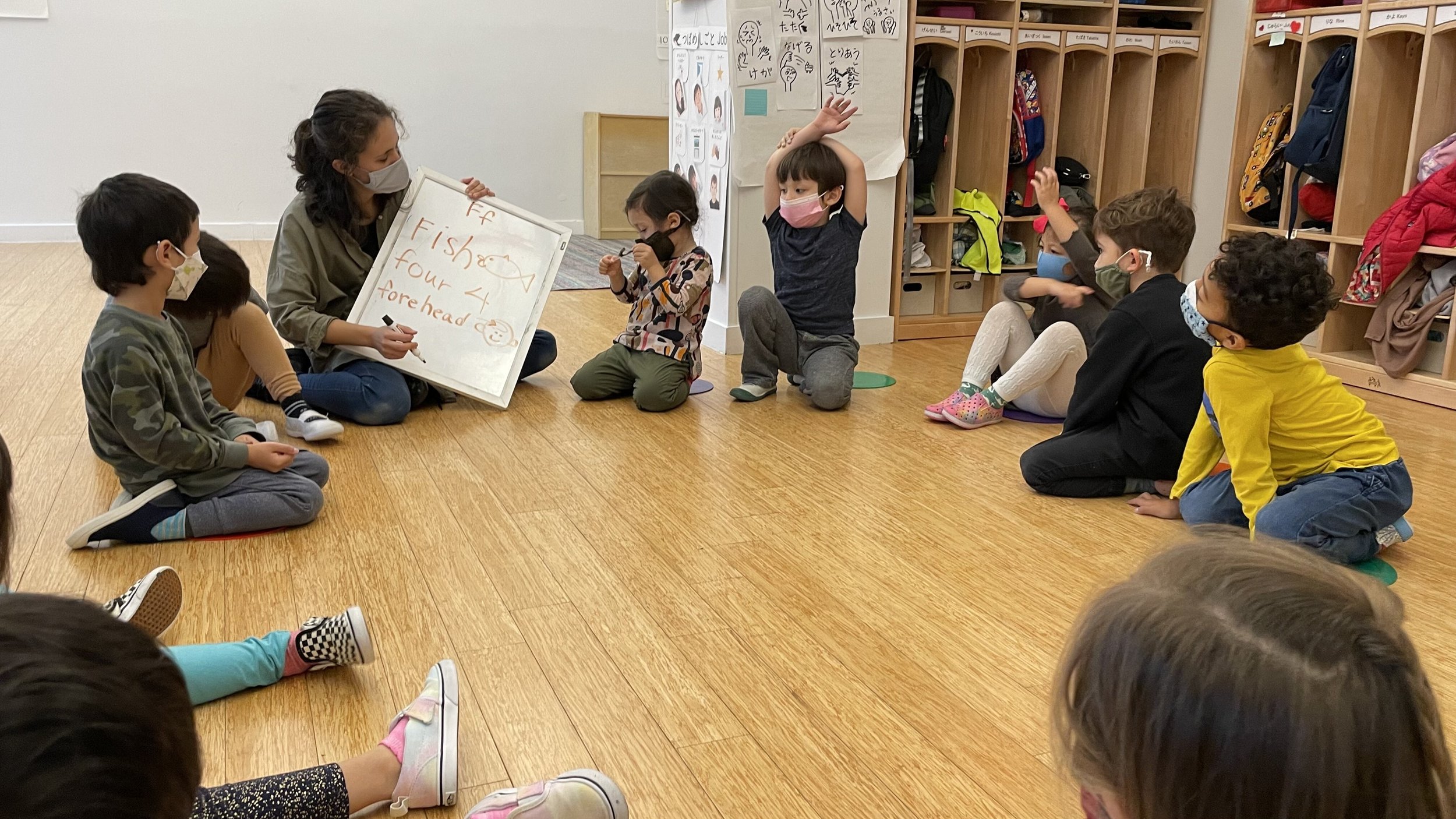Benefits of a Bilingual Education バイリンガル教育について
At Aozora why do we have a bilingual program? Why aren't we a 100% Japanese immersion program? We have been asked this question many times. It is often thought that having young children learn more than one language may confuse them. However, research has shown that children aren’t confused by learning more than one language, instead, learning multiple languages has been found to be quite beneficial in all areas of children's development, such as cognitive, language/literacy, and social-emotional development.
One of the biggest reasons why we love to have English time at school is to nurture children’s non-cognitive skills such as self-esteem, self-regulation, and confidence as well as inter-personal skills which are skills that cannot be gauged by numbers. Language is a social tool and the types of language or words and phrases one uses can change depending on the environment or situation one is in. For example, the interactions and conversations a child has with parents or siblings at home is different from the conversations with friends or teachers at school. Being able to experience the school time in both languages can bridge the communication gap between languages, and children are able to understand and connect with each other better and learn to build tighter bonds and stronger friendships. For example, during the activities in English, children who are more comfortable with English get to experience the joy of sharing their opinions and build their confidence. That self-confidence could help them actively engage in class activities or willingly interact with their peers even in Japanese.
On the other hand, for children with higher Japanese language skills, lessons in English could be challenging and help them improve their perseverance. Unlike during the usual school time in Japanese, they may encounter some obstacles in communicating with their peers and teachers or may have to try several times until they can complete the tasks. Those experiences often help nurture their empathy and kindness towards their friends in need.
The long journey of raising a bilingual/ multilingual child has just begun and there will be many ups and downs along the way. The bonds and friendships they make at Aozora will become one of the strongest motivations for many children to continue their Japanese language learning for many years to come.
あおぞらでは、なぜバイリンガルプログラムを行っているのですか?なぜ日本語だけのイマージョンプログラムにしないのですか?とご質問をいただくことがあります。まだまだ発達途中の小さな子どもたちに1つ以上の言語を学ばせることは、子どもたちを混乱させることになるのではないかと言う意見もあります。しかし、幼少期のバイリンガル・マルチリンガル教育についてのたくさんのリサーチがなされ、言語能力のみならず、認知能力やソーシャル・エモーショナル(社会性・情性)能力などの発達に効果的な影響をもたらすということが証明されています。
たくさんのプラス要素の中でもあおぞらでは、自己肯定感・自尊心・自立心・自制心・自信そして人と関わる力などの読み書き・計算などの数値では測れない非認知能力を養うために英語で過ごす時間は大切だと考えています。言葉というのは、社会の中で人と関わるための道具であり、環境や状況により使われる表現、単語などが異なります。例えば、子どもが家で自分の親や兄妹などと使う言葉や会話と、学校で友達とまたは先生と使うものはそれぞれ違っているはずです。子どもたちは、「学校生活」という家とは違った時間を日本語だけでなく、英語でも経験することで、他の子どもたちと日本語だけで過ごしていた時とは違った角度で関 わり合いを持つができ、より深い友情関係を築いていくことに繋がっていきます。英語の方が得意な子どもは、英語の時間に自由に自分の意見を共有することで喜びを感じ、自信を育みます。それが日本語のクラスの中でも自ら積極的にクラスの活動に参加して友達とも関わる姿勢につながります。
また、日本語の言語能力が高い子どもにとっても、英語の活動の時間は、忍耐力の発達を促す効果があります。英語での活動の日にはお友達と自分が思うように関わることができなかったり、何度か挑戦しないとできない事がありますが、そのような経験を通して困っているお友達を思いやる優しい気持ちが育まれます。
バイリンガル・マルチリンガルの子どもを育てていくと言うことは、幼少期だけのことだけではなく、子どもたちの成長とともに続いていく上がったり下がったりの長い道のりです。あおぞらでお友達と築き上げた友情関係と絆がこの先、日本語学習を続けていく大きな原動力になる日がきっと来ると思います。
